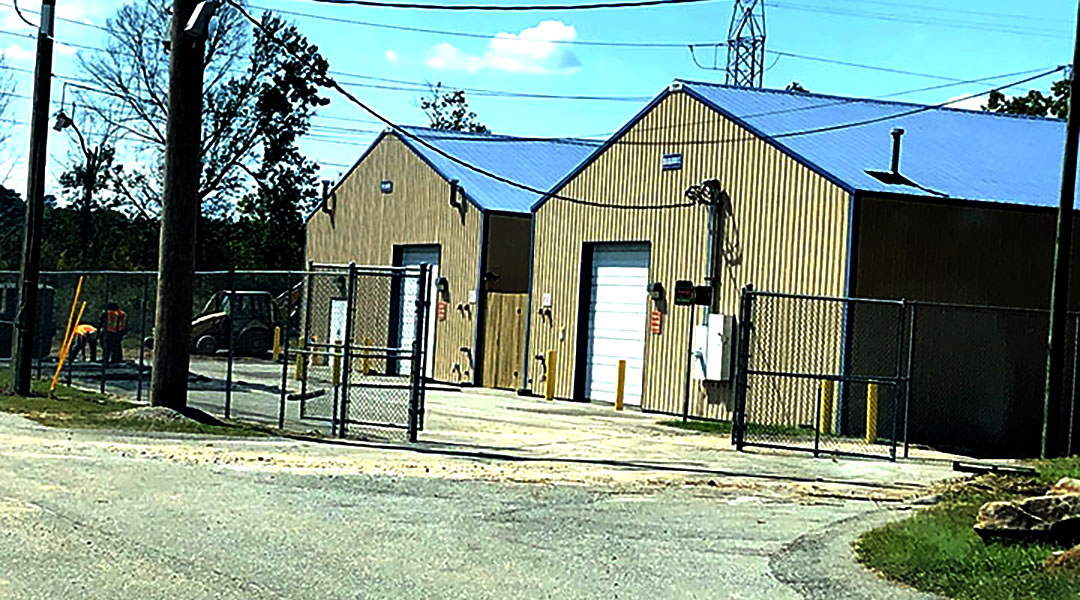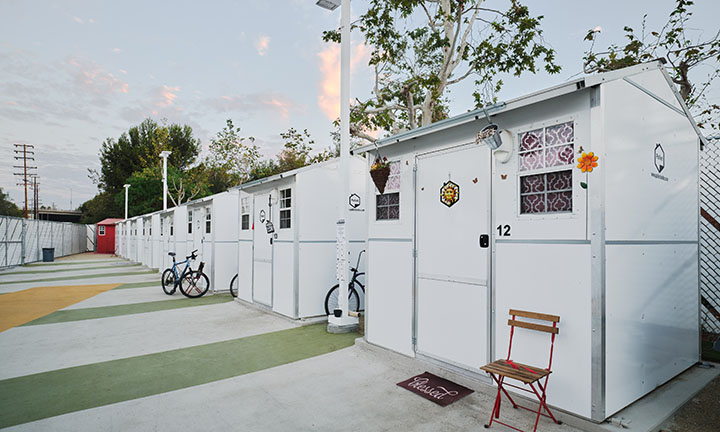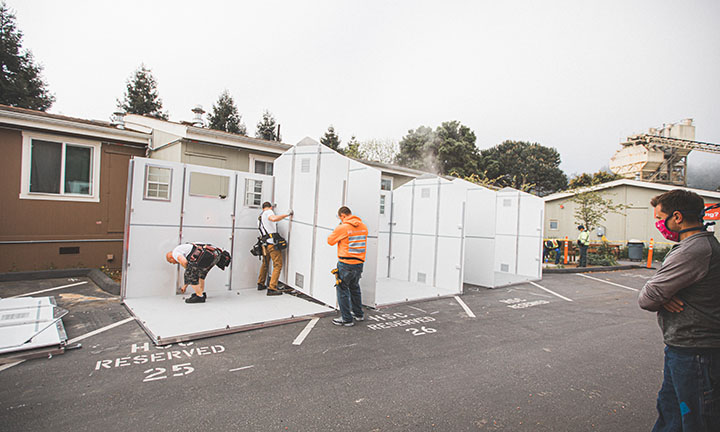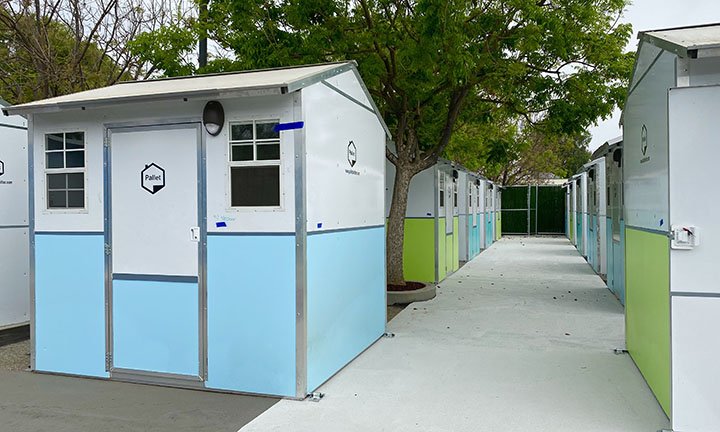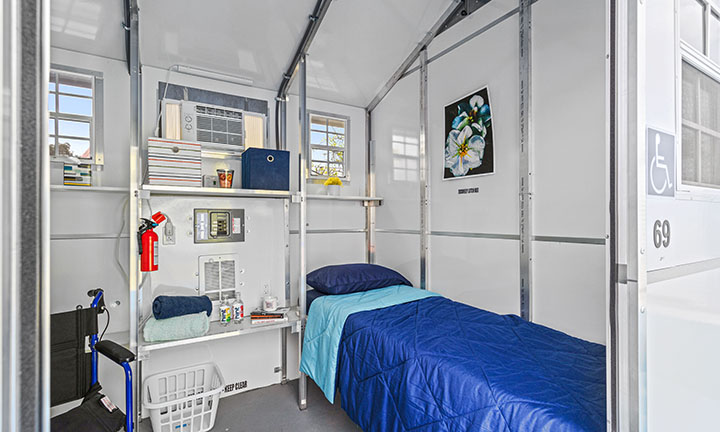Columbia’s downtown shelter, where the pallet homes will be built. (Photo by Connor Bird)
Columbia is building 50 “pallet homes” to give some of its chronically homeless a place to live by themselves year-round.
The single-occupant homes will be near the city’s downtown homeless shelter, which will become year-round rather than just offering its 240 beds during the winter months.
The extra beds, and the year-round capacity, comes as Sheriff Leon Lott is planning to clear homeless camps around Richland County, leaving advocates wondering where everyone will go when they need a place to sleep – and whether there are enough beds in general.
City Council members held a press conference Sept. 7 to announce the plan to build the pallet home village near the city shelter, which will be called Rapid Shelter Columbia as it switches to 24/7 usage.
The idea for all the change is to help people find a job and permanent shelter, city officials said.
The homes will be built with the help of a Seattle-based company called Pallet, which specializes in helping the unhoused nationally. Each pallet home can be built in under an hour or adapted to be ADA-compliant if needed.
“We have a deployment team that goes in,” said Josh Kerns, the public relations manager for Pallet. “We have a team of eight people who specialize in building our pallets and they can train local volunteers to help build the pallets.”
While Pallet is a for-profit company, it puts all its earnings back into building more shelters. Pallet has standards the city must meet before it agrees to build, Kerns said. Cities must provide bathrooms – which Columbia already has at the site – places to do laundry and service providers who specialize in helping the unhoused.
The city also will hire 24-hour security guards and additional city employees to help the homeless get back on their feet.
Kerns said Pallet only partners with cities if they provide support for pallet home residents.
“The models that are most successful are the ones that are run by people who have extensive experience helping the homeless,” Kerns said.
The city’s decision to use local service providers raises concerns for some.
“A lot of these (homeless) people have dealt with those providers already,” said Regi Solis, a formerly homeless man who is now the founder of Needful Things Lexington and Columbia. “Service providers are going to have to regain trust. It’s not enough. But it is a start.”
One local organization warns that social safety net programs that are inclusive and effective take a lot of money – and a lot of hands-on work.
“I think there is good intention there, but I don’t think this is adequate and inclusive housing,” said Mary Alex, director of public affairs and Events at AbleSC. “Sometimes these rapid shelters can be seen as a Band-Aid. The real solution is inclusive housing that helps people get back on their feet and helps people work towards finding housing of their own. These shelters are good as a part of the plan, but the city needs to invest in human infrastructure.”

